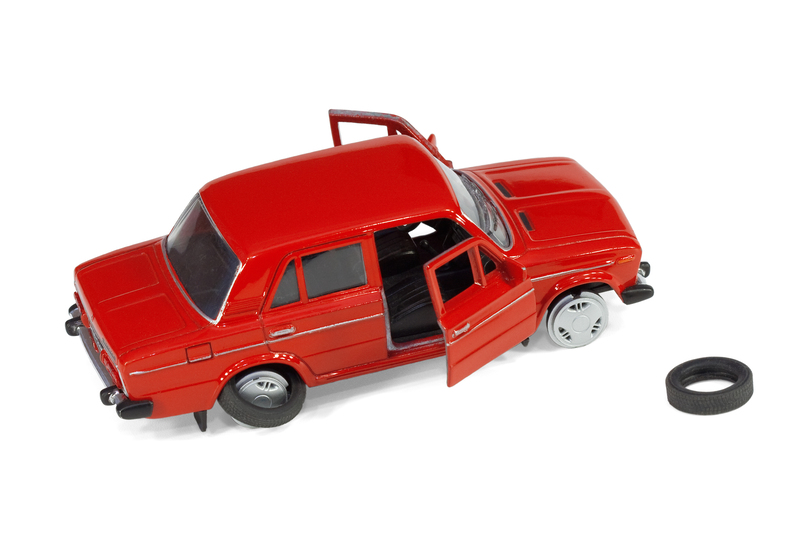Easy Ways to Cut Costs When Disposing of Bulky Waste
Disposing of large, unwanted items like furniture, appliances, or yard debris can be a challenging--and often costly--process. But with a few strategic approaches, you can save money and even help the environment. In this guide, we'll explore easy ways to cut costs when disposing of bulky waste, offering practical solutions for every type of household or business. Whether you're moving, renovating, or decluttering your space, these tips can make bulky waste removal stress-free and affordable.
Understanding Bulky Waste and Its Disposal Challenges
Before diving into cost-effective methods, it's important to define what qualifies as bulky waste. Typically, bulky waste includes large items that are too big to fit in standard trash bins, such as:
- Old furniture (sofas, armchairs, mattresses)
- Household appliances (refrigerators, washing machines, microwaves)
- Large electronics (TVs, computers, printers)
- Construction debris (doors, windows, lumber)
- Green waste (tree branches, large plant clippings)
The main challenges with bulky item disposal are:
- High removal or landfill fees
- Logistical issues, like transportation and lifting
- Limited municipal bulk waste collection days
- Environmental concerns over increased waste in landfills

Top Money-Saving Tips for Bulky Waste Removal
There are many affordable ways to dispose of bulky waste. Some require a little effort, while others simply involve being strategic about timing or resources. Here's how you can reduce bulky item disposal costs and even turn some of your trash into cash.
1. Plan Ahead and Combine Items
Many municipalities offer free or discounted bulky waste collection on certain days. By planning your disposal around these dates and combining multiple items into a single collection, you can save on per-item fees and avoid the cost of private hauling.
- Check your city or county's bulk waste pickup schedule
- Ask neighbors if they want to split costs for a joint collection
- Organize a neighborhood "bulky waste day" to share expenses on rental bins or dumpsters
2. Donate Usable Items
Non-profits and charity organizations often accept gently-used furniture and appliances. Donating not only keeps items out of landfills but may also qualify you for a tax deduction. Some organizations will pick up bulky donations for free, saving you both money and effort.
- Find local charities that accept furniture and appliances
- Confirm that your items meet their donation guidelines
- Schedule a free pickup or drop-off
- Request a donation receipt for tax purposes
3. Sell or Give Away Bulky Waste Items
One of the easiest ways to offset disposal costs is to sell unwanted items online. Even items in need of repair can have value for parts or creative upcyclers.
- List on platforms like Craigslist, Facebook Marketplace, or OfferUp
- Offer items for free curbside pickup in your neighborhood group
- Upcycle or repurpose the item and sell as a DIY project
- Schedule a garage sale and invite neighbors to join
Tip: Label curbside "free" items clearly to prevent any confusion with trash, and confirm local regulations regarding curbside giveaways.
4. Use Recycling Facilities and Scrap Yards
Many bulky waste items--especially appliances and metals--have valuable materials that can be salvaged. Recycling centers often accept these materials, sometimes at no cost, or even pay you for them!
- Find local metal recyclers or scrap yards for old appliances, bikes, or grills
- Check electronics recycling events for TVs, computers, and other e-waste
- Contact construction material recyclers for lumber, windows, or roofing
Recycling facilities usually charge much less than landfills, and some may even provide a pickup service. This can make bulk item recycling a win-win proposition.
5. Rent, Borrow, or Share a Vehicle
If you have access to a suitable vehicle--a truck or trailer--you can save the cost of hiring a junk removal service. For those who don't have one, consider renting or borrowing from a friend, or splitting costs with others needing to dispose of bulky items.
- Rent a pickup truck or trailer for a few hours
- Coordinate disposal with neighbors to share rental costs
- Look for local "truck sharing" or community tool libraries
Always check with your local waste disposal center for rules about accepting self-delivered bulky waste.
6. Break Down Bulky Waste Whenever Possible
Many large items can be disassembled or cut into smaller parts to reduce size and weight. This makes transportation easier, and in some cases, can qualify your waste for cheaper residential pickups. Remove doors, legs, and separate materials (like metal from wood or fabric) for easier handling and recycling.
Remember: Always use proper safety tools and protective gear when disassembling furniture or appliances.
7. Check for Local Bulky Waste Disposal Programs
Cities often offer special programs or discounted rates for residents to dispose of large waste. These may include:
- Annual free bulky waste drop-off events
- Special curbside pickups subsidized by municipal budgets
- Discount coupons or vouchers for local landfill or transfer station entries
Visit your city or county website to see what's available and schedule in advance.
Comparing Bulky Waste Disposal Options: Cost & Convenience
What's the overall best approach to affordable bulky waste disposal in your situation? Here's a quick comparison to help you decide:
| Method | Average Cost | Best For | Effort Level |
|---|---|---|---|
| Municipal Collection | Low (often free) | Routine, small to moderate loads | Low |
| Charity Donation | Free (may qualify for tax deduction) | Usable large items | Low-Medium |
| Sell or Give Away | Free (or profit!) | Items in good or fair condition | Medium |
| Recycling/Scrap | Usually low cost or free | Metal, electronics, or repairable goods | Medium |
| Rent/Retail Disposal | Moderate (truck rental, disposal fee) | Mixed or hazardous bulky waste | High |
| Private Junk Removal Service | High (per load or item) | Urgent, heavy, or complex removals | Low (professional) |
Frequently Asked Questions on Affordable Bulky Item Disposal
Can I Dispose of Bulky Waste for Free?
In many places, you can dispose of bulky items for free by taking advantage of municipal collection days, donation programs, or local recycling events. Always check local regulations for eligibility and limits on the number or size of items.
What Items Are Not Allowed in Regular Bulk Waste Pickup?
Most municipal services do NOT accept hazardous materials (paint, chemicals, batteries), car parts, or construction debris in regular bulk pickups. Check your local guidelines before placing items curbside.
Is It Cheaper to Hire a Junk Removal Company or Haul Bulky Items Myself?
Hauling large items yourself is usually less expensive but requires access to a suitable vehicle and physical labor. Hiring professionals is more convenient but can add significant cost, especially for large loads or specialty items.
How Can I Recycle Bulky Waste?
Look for local recycling centers that accept specific materials:
- Scrap yards for metal appliances and hardware
- Certified e-waste recyclers for electronics
- Green waste facilities for oversized yard debris
Environmentally Friendly Ways to Dispose of Bulky Waste on a Budget
Reducing landfill waste is as important as saving money. These eco-conscious methods help the planet while keeping costs down:
- Repurpose furniture as garden planters or workshop benches
- Donate to creative reuse centers or theater groups for props
- Contact local trade schools or artists who may use materials for projects
- Use repair cafes or upcycling workshops in your area to fix and give new life to old items

Essential Safety Tips for Handling and Disposing of Bulky Items
- Always lift with your legs, not your back
- Wear gloves, safety glasses, and sturdy shoes
- Disassemble heavy objects when possible before moving
- When renting a truck or trailer, secure items properly to prevent accidents or fines
- Follow proper disposal protocols for electronics, chemicals, or refrigeration units
Final Thoughts: Smart Ways to Save on Bulky Waste Disposal
With a bit of preparation, resourcefulness, and local knowledge, everyone can cut the costs of bulky waste disposal. Combining methods--such as donating, recycling, and using free municipal services--often yields the greatest savings. Not only will you keep your wallet happy, but you'll also contribute to a cleaner, greener community.
If you're facing a major cleanout, take the time to sort items into reusable, recyclable, and true waste categories. Use community resources to your advantage, ask neighbors to collaborate, and don't forget to research local rules and opportunities--they differ from city to city.
